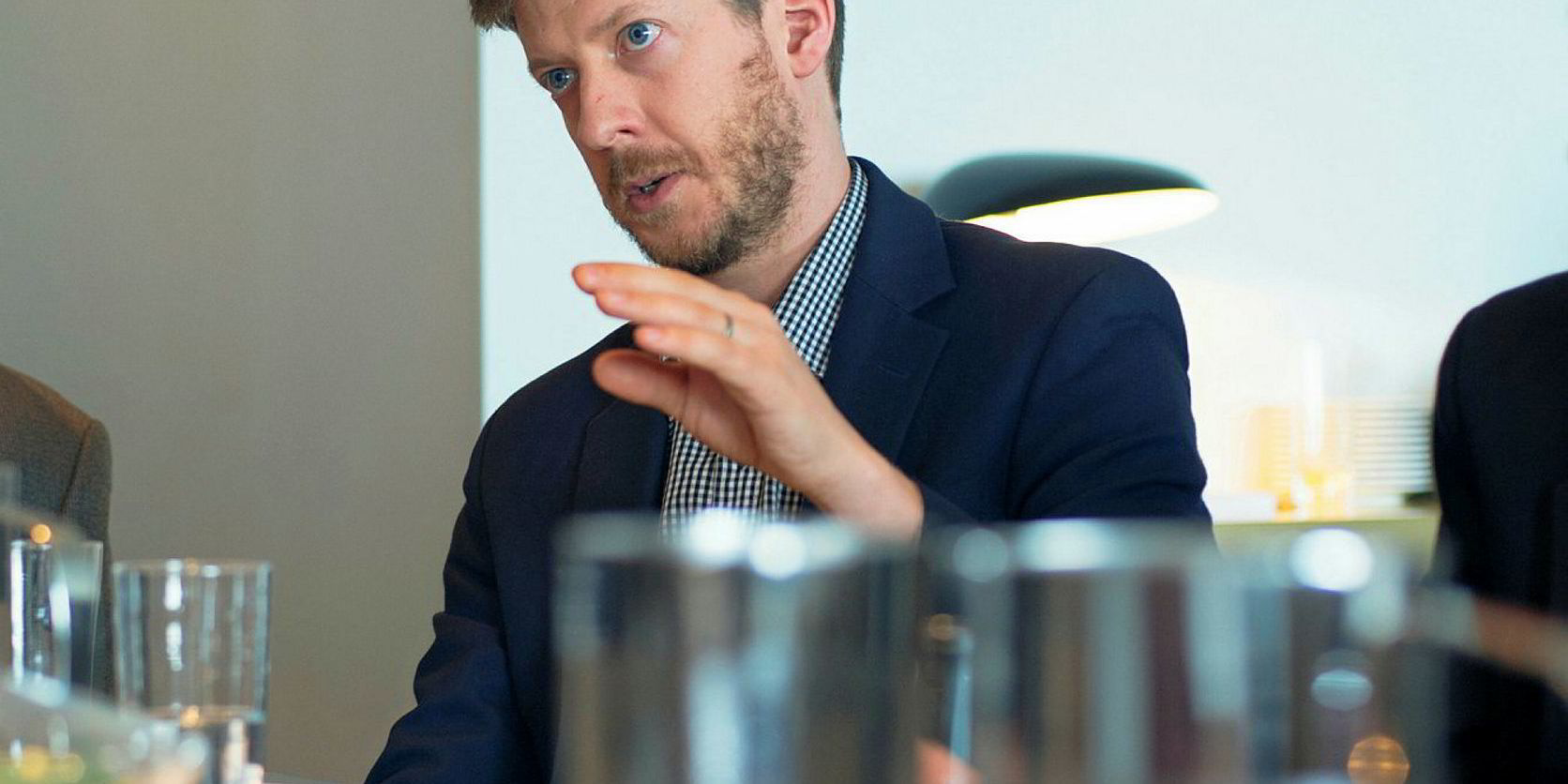Despite all the talk about energy efficiency, shipping has an information barrier that makes much of the data on which efforts are being based meaningless.
“No one has an independent, transparent and rigorous way of measuring the performance benefit of a technology,” University College London (UCL) Energy Institute reader in energy and transport Tristan Smith told TradeWinds in an interview at UCL.
This is both a problem and an opportunity for the institute, which has a mission statement “to help to build a globally-sustainable energy system” from its research and analysis.
One of Smith’s main fields of interest is low-carbon shipping — the search for technologies, economic models and policies that can reduce greenhouse-gas emissions.
He cites a Japanese research programme into wind-assisted ships after the 1970s' oil shock. Following a collapse in prices in the 1980s, it predicted such technologies would be effective when oil rose again to $50 a barrel. But little happened.
“It’s amazing that here we are, seven or eight years after fuel prices were really high again and everyone was starting to think about fuel efficiency, and we still haven’t really tested this technology," Smith said. "For the sake of £2m to £3m ($2.6m to $3.8m) no owner bothered to stick something on a ship and work on it.”
The latest research project to install Flettner rotor sails on a Maersk products tanker is largely going over old ground. It is funded mainly by the UK's Energy Technologies Institute in a partnership with Norsepower and Shell Shipping & Maritime.
Nevertheless, Smith believes the study can achieve two valuable things if it provides usable data and acceptability.
“Putting brand names behind it may mean people will say perhaps it’s not so bonkers after all — and it will give a wealth of operational experience. It will give them the confidence that they can deal with terminals, be able to go into various ports, and that safety is completely under control.”
And despite a general lack of interest from ship operators in pushing new technologies, Smith said: “My encounters with industry are really encouraging.”
One of the issues is overcoming fear and misunderstanding. “We can do something to help show it is not something to be scared about, particularly when we are talking about multi-decadal change,” he said.
The key will be getting high-level buy-in by financiers and major charterers or shippers. They have an incentive to ensure the technologies they use are not left stranded by change and are preferred by consumers. Various technology types will work better in different areas and weather conditions.
Using AIS and other data, Smith said:“We can identify a ship’s fuel consumption, we know exactly where it’s been trading, where it has loaded and unloaded cargo. You can get so much information at an IMO number level, but being able to connect that to the financier or the charterer is difficult.
“We are not the only people working on it, but our perspective is different. I don’t find many in the commercial sector looking at it from an energy efficiency, air pollution or greenhouse-gas perspective.”
But he is largely optimistic about finding a wider level of acceptance within the shipowning and operating industry.
No one yet knows what the fuel of the future will be, so there is no infrastructure for it, but a recently unveiled Rolls-Royce Marine design for a modular containership could be an answer.
The Electric Blue design aims to be future-proof by employing unitised machinery and engine spaces in the same way as for its cargo of boxes.
Engines, fuel tanks and batteries can be swapped in and out of standardised machinery areas in a simplified hull. The same ship could be powered by batteries and later switched to LNG or fuel-cell propulsion systems either purchased (or, perhaps better still, leased) — and Rolls-Royce says the idea can be scaled up.
“Separating the asset life cycle from the hull and machinery could be crucial for getting through the next couple of decades with shipowners not taking major risks or bets,” Smith said.




